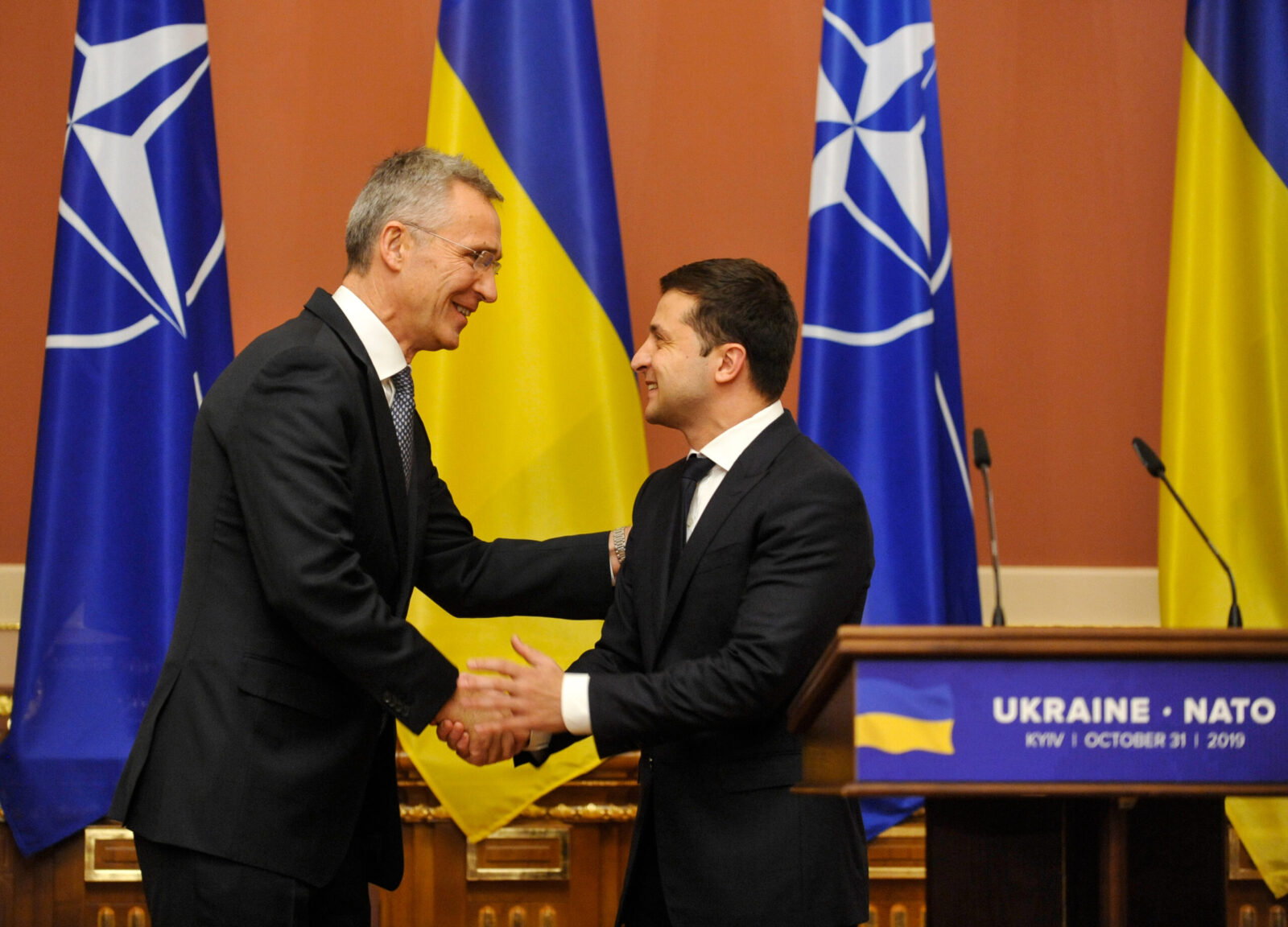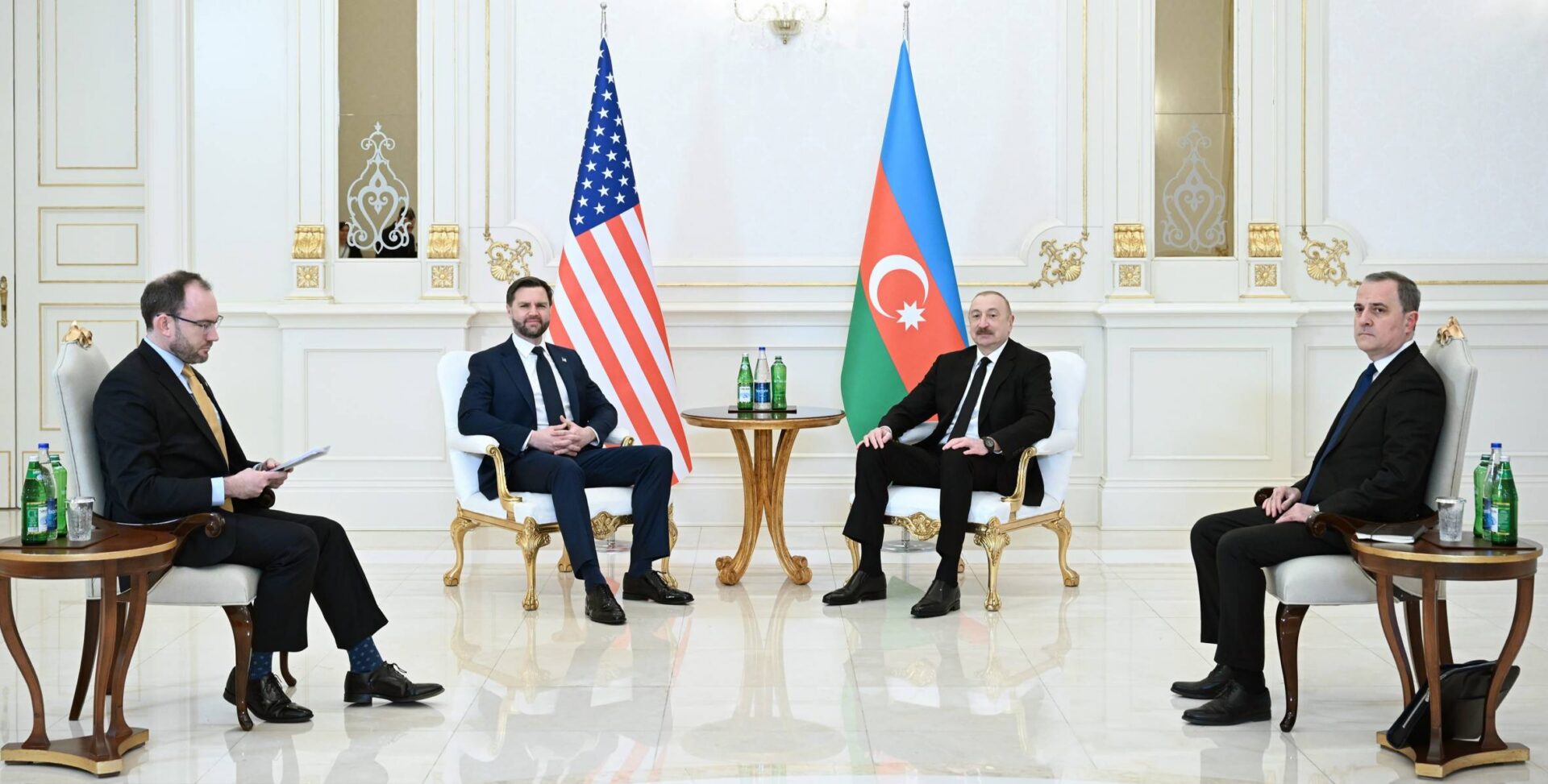
Official Western Views Diverge With Ukrainian Views On War Outcomes (Part One)
Official Western Views Diverge With Ukrainian Views On War Outcomes (Part One)
A wide gap, a chasm in fact, persists between Ukrainian and most Western official definitions of what would constitute a successful outcome in Ukraine’s struggle to defeat Russia’s full-scale invasion. Washington, Berlin and Paris have again indicated most recently that their support for embattled Ukraine is subject to self-imposed limitations (The Washington Post, February 13; Le Figaro, February 19; see EDM, February 21; The Wall Street Journal, February 24; Focus.de, February 26). Those constraints are of four types: qualitative and quantitative limitations on arms supplies; political limitations, avowedly in deference to Russia; and time limitations conditioned, presumably, by the West’s finite patience.
While constraints on arms deliveries have been relaxed over time in a piecemeal fashion (“incrementally”), a time limit on active combat is now being adumbrated for the first time: Ukraine will have its chance at a counteroffensive in the summer, regain some undetermined part of Ukrainian territory and sit down to negotiate a ceasefire in place, even if some Ukrainian mainland territories remain in Russian hands at that time (with Crimea being a Russian “red line” according to most Western leaders).
Western governments have yet to define what would constitute a successful outcome of this war for Ukraine and ipso facto for themselves. They have, at last, moved beyond the unedifying motto that “Russia should not win, Ukraine should not lose.” But they tend to avoid the term “victory,” speaking instead of supporting Ukraine in maintaining its independence, sovereignty and security; its democracy; and its prospects to eventually integrate with the European Union. When listing the criteria for a successful outcome, however, most Western leaders tend to omit references to restoring Ukraine’s territorial integrity. Instead, they usually reference the Russian-occupied territories in a quite different context—namely that of never recognizing Russia’s de facto annexations of Ukrainian territories. The Kremlin clearly reads this as tacit acceptance of its faits accomplis, and it is comfortable with the West’s legalistic non-recognition policy. Additionally, Moscow considers economic sanctions as a price well-worth paying for the annexations of Ukrainian territories.
A number of North Atlantic Treaty Organization (NATO) member countries, including the most powerful ones, are apparently considering ways to underwrite the security of whatever territory remains in Ukrainian hands after a ceasefire in place. That security arrangement will, however, fall short of NATO membership for Ukraine. According to NATO Secretary-General Jens Stoltenberg, Ukrainian membership remains “a long-term perspective” (Ukrinform, February 28). This long term apparently runs from this year (2023) onward, in continuation of the long term that began with NATO’s 2008 membership pledge to Ukraine. Stoltenberg is simply communicating the Alliance‘s lowest-common-denominator view on this issue.
All of that stands in stark contrast with the views of the Ukrainian leadership and population concerning the war and its possible outcomes. A series of recent public opinion surveys in Ukraine, conducted by well-respected specialized organizations, have registered the views at a grassroots level, documenting, by the same token, a full congruence between ordinary citizens’ views and those of the state leadership. Each poll has been conducted in all of Ukraine’s government-controlled territories with representative samples of age, gender, settlement pattern, education and income. The surveys have been conducted by:
- The United States National Democratic Institute (NDI) in partnership with the Kyiv International Institute of Sociology (KIIS) conducted a survey in the first half of January 2023, by telephone, on a representative sample of 2,508 respondents, with a maximum margin of error of 2.2 percent, released on February 22 (Novoye Vremya, February 28).
- The Democratic Initiatives Foundation (DIF) jointly with The Razumkov Center, in cooperation with the Netherlands-based Matra Program,conducted a survey in mid-December 2022, through face-to-face interviews, on a representative sample of 2,018 respondents, with a maximum sampling error of 2.3 percent, which was made public on January 5 (Ddif.org.ua, accessed February 28).
- The Sociological Group Rating conducted a survey in mid-January 2023, by telephone, on a representative sample of 1,000 respondents, with a maximum margin of error of 3.1 percent, which was made public on January 23 (Ratinggroup.ua, accessed February 28).
- The Munich Security Index 2023, commissioned by the Munich Security Conference, was conducted in November 2022 on a representative sample of 1,000 respondents by the Munich-based Kekst communications agency with Ukrainian partners, which was made public on the occasion of the Munich Security Conference in February 2023 (Securityconference.org, accessed February 19).
All these surveys show a high level of confidence in NATO, combined with similarly high expectations of security guarantees for Ukraine from the Alliance as such or a combination of its member countries.
In the NDI-KIIS survey, 86 percent of respondents supported NATO membership for Ukraine after the war. Asked whether they might renounce the goal of NATO membership in a peace settlement with Russia, 71 percent rejected this idea (49 percent deemed it “fully unacceptable” and 22 percent as “rather unacceptable”). Only 20 percent considered this idea as “acceptable” (12 percent answered “rather acceptable” and 8 percent as “fully acceptable”).
According to Rating Group’s poll, the same proportion of 86 percent would vote in favor of NATO membership in a Ukrainian referendum after the war. This percentage is the highest ever on record. As a hypothetical alternative option, 85 percent would vote in favor of Ukraine joining a military-political alliance comprised of the United Kingdom, Poland and Ukraine.
The DIF-Razumkov Center survey presented the respondents with several alternative options for postwar security guarantees, including guarantees by Ukraine’s own army. In that multiple-choice situation, 65 percent supported joining a Western coalition: 49 percent favored NATO; 9 percent favored an alliance comprised of the UK, Poland and other Central and East European states with Ukraine; and 7 percent for a purely bilateral alliance between Ukraine and the United States only. Meanwhile, only 17 percent would rely on Ukraine itself developing its own armed forces with Western assistance. And only 9 percent would favor Ukrainian nonalignment under international security guarantees.
According to the Munich Security Conference Report, respondents believe that “Ukraine will never be secure” in any of the following situations: “as long as Putin sits in the Kremlin” (83 percent); “without Western security guarantees” (75 percent); “without permanent arms supplies from the West” (72 percent); or “outside of NATO” (65 percent).


